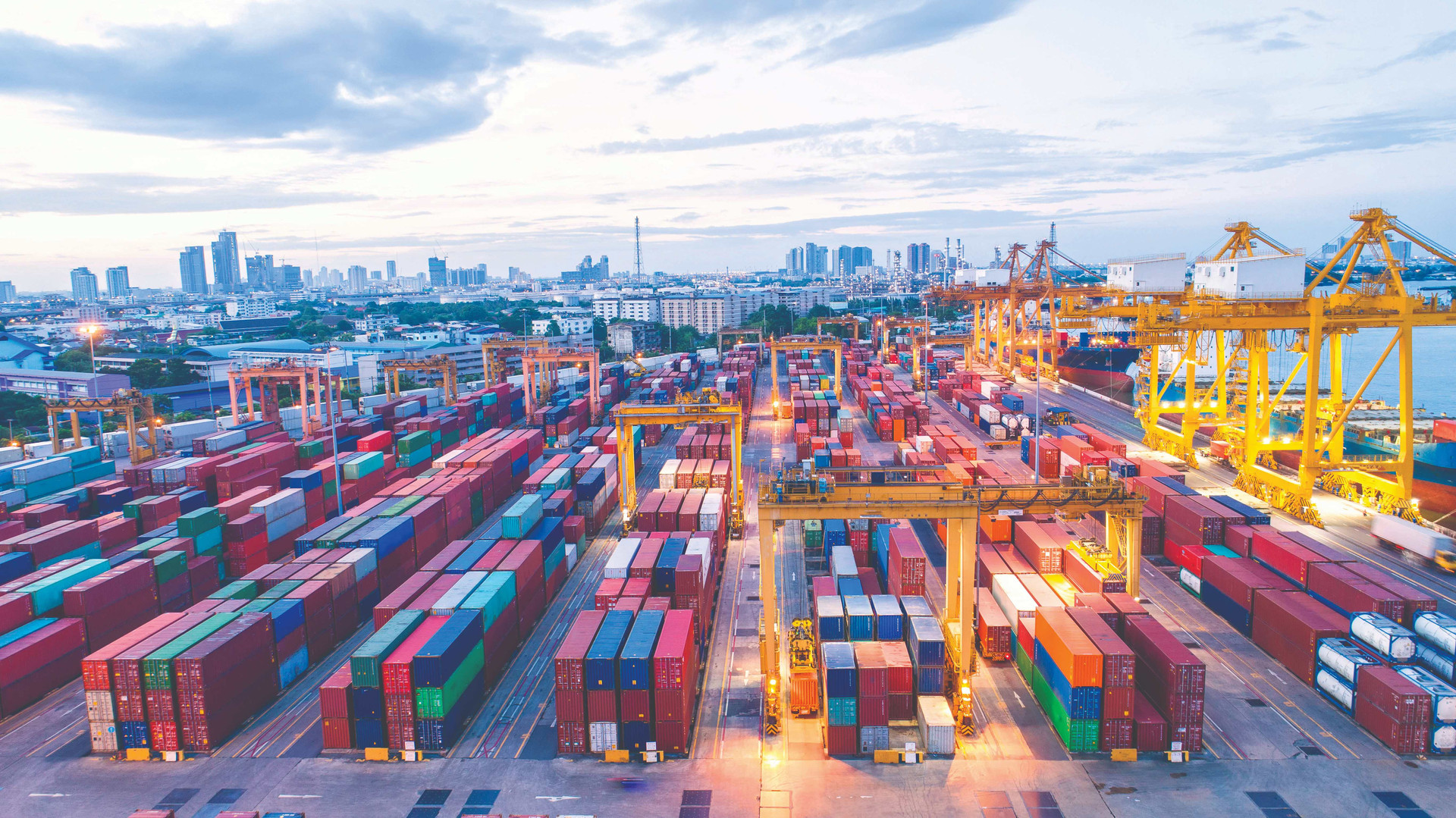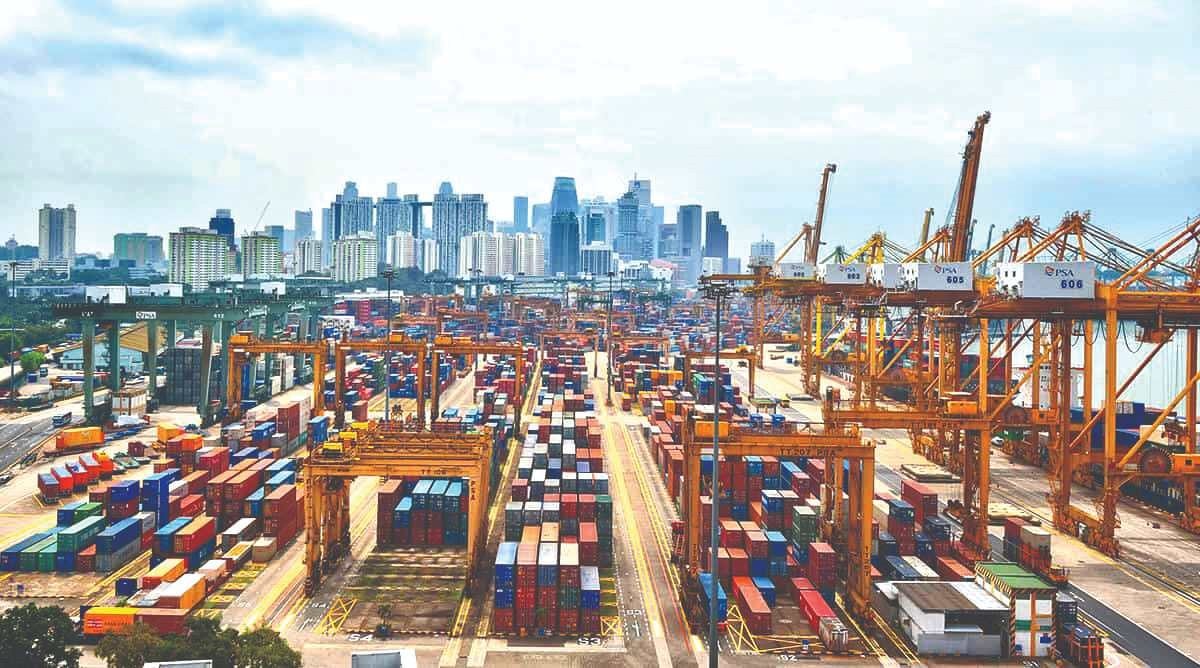10 experiences in developing logistics of Singapore
English - Ngày đăng : 08:26, 19/05/2023
So what are the "highlights" that help this island nation rank first in the logistics industry and contribute to the prosperity of the national economy? Here is a summary of 10 highlights in building and developing logistics in Singapore.

1. Geographic location and urban planning: Singapore has a strategic geographic location among the main commercial routes of Asia, and has a developed system of roads, waterways, and air transport. The Singaporean government has heavily invested in developing seaports, airports, railways, and road systems to improve connectivity and transportation of goods.
2. Investment in technology and infrastructure: Many decades ago, Singapore invested heavily in new technologies to improve logistics processes. For example, they have deployed automation systems and robots to increase productivity and reduce costs. They built modern logistics centers, with intelligent cargo monitoring and management systems.
3. Collaboration: Singapore focuses on expanding cooperation with partners in the region and internationally to enhance strength and capacity in the logistics industry. They also have policies to support businesses in Singapore to encourage investment in logistics services and develop labor skills.
.jpeg)
4. Environment: This country also leads in policies to reduce the negative impact of logistics activities on the environment. They have invested heavily in green technologies and recycling to reduce waste and emissions.
5. Human resource development training: Not only in training logistics human resources, Singapore is also recognized as a leading country in the world in "education exports", with an advanced and efficient education ecosystem. Specifically for the logistics industry, the government and the system of educational institutions here are very conscious in organizing training courses, training programs, and certification for training to improve the skills of logistics human resources. This has helped increase the capacity and quality of labor, meeting the demand for logistics development in Singapore.
6. Encouraging investment: The Singaporean government has introduced policies to support and encourage investment in the logistics industry. Businesses are provided with financial and tax support to develop logistics services, while policies are also in place to encourage investment in potential development areas, such as industrial zones and seaports.
7. Quality and safety management: Singapore places great emphasis on quality and safety management in logistics operations. They have applied international standards to ensure the quality and safety of transported goods. This helps increase customer and partner confidence and enhance the reputation of Singapore's logistics industry in the international market.
8. Application of information technology: Singapore has used information technology to optimize logistics processes and improve operational efficiency. They have applied technologies such as artificial intelligence, blockchain, and IoT to manage and monitor goods and warehouse systems. This helps increase the accuracy and reliability of logistics processes and reduce errors and logistics costs.
9. Developing new services: Singapore has developed policies to support and encourage the development of new logistics services to meet customer needs and industry development trends. Examples include express delivery services, river transport, and cold chain logistics. This helps strengthen the industry, diversify product and service offerings, and enhance Singapore's logistics capabilities on the international stage.

10. Digital transformation: Not stopping at the application of pure information technology, Singapore is also one of the leading countries in research and application of digital government and digital society to facilitate and simplify administrative procedures, increase information transparency, and enhance processing and problem-solving capabilities. Singapore's logistics industry is also known to have undergone early digital transformation at all levels, from government to localities and businesses. They have achieved great success in the digital logistics field.
Singapore has implemented diverse strategies to enhance logistics competitiveness through building modern and advanced logistics systems. Logistics has become one of the most competitive and important industries for Singapore's economy. Singapore's investment and development experiences can help us learn and apply to improve local and national logistics operations.
The LPI (Logistics Performance Index) is an index that assesses the effectiveness of logistics operations in each country, based on 6 main indicators: infrastructure, delivery, competence, tracking, timeliness, and customs clearance. The World Bank has announced this index seemingly every 2 years: 2007, 2010, 2012, 2014, 2016, 2018, and 2022 (publishing the index for 2021, as the years 2020- 2022 were affected by the Covid-19 pandemic).
The LPI score for 2021 of the top 5 countries and Vietnam out of 160 countries and territories are as follows:
1. Denmark: 4.8/5 points
2. Netherlands: 4.78/5 points 3. Germany: 4.76/5 points
4. Singapore: 4.76/5 points 5. Switzerland: 4.73/5 points ..........................53. Vietnam: 3.67/5 points (dropped 14 places from the previous announcement in 2018, where Vietnam ranked 39/160 with a score of 3.77/5)
